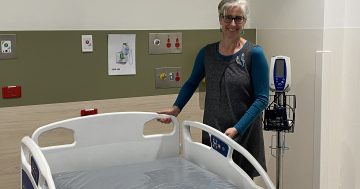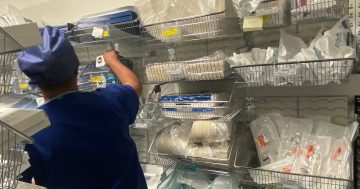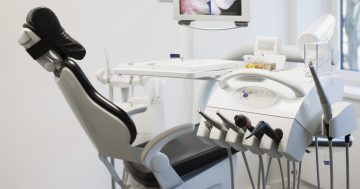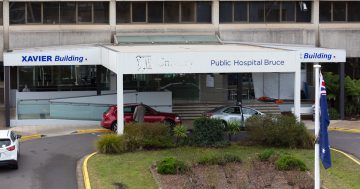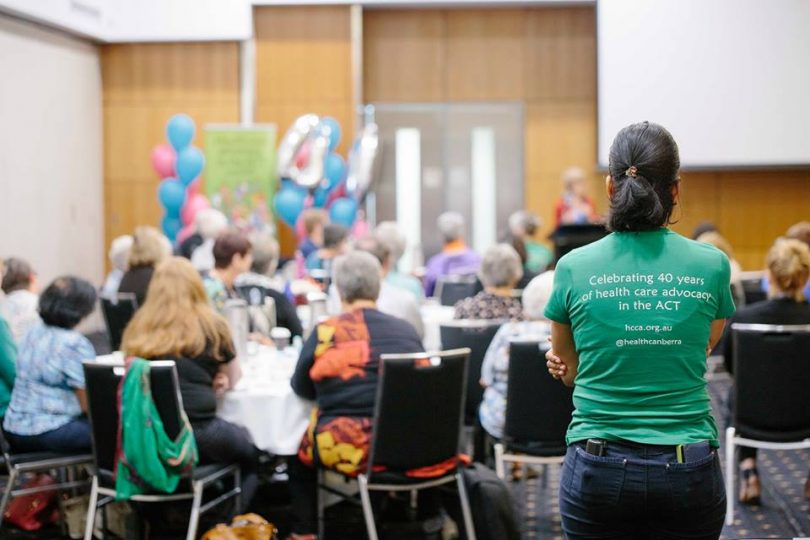
The HCCA celebrates 40 years. Photo: Facebook.
Have you ever had a good experience in the health system? Ever had a bad experience? Do you ever think it would be useful to share your experience to improve things for others?
The Health Care Consumers’ Association of the ACT (HCCA) is a local organisation that has been working for decades to do just that. The HCCA shares the voices of consumers with health policy makers, planners, and health services themselves. It is working to ensure that health services in the ACT are accessible, safe and meet the needs of our community.
While it recently celebrated its 40th birthday, getting health planners to listen to consumers hasn’t always been easy. HCCA was born in the 1970s, a time where social activism was on the rise and people wanted their concerns to be heard. They felt that health services should be designed by and for the people they were intended to serve. While this sounds reasonable now, this was a radical idea 40 years ago.
HCCA began as a small, informal group of people, sitting around kitchen tables, who wanted the health system to change. They connected with others who frequently used the health system and understood where improvements could be made. They decided in October 1976 to establish a health consumers organisation. Just two years later, HCCA received its official certificate of incorporation.
Acting Director of HCCA, Kate Gorman reflects that this idea that was seen as radical in the 1970s is now an accepted part of health service planning.
“This idea of involving consumers in both their own health care, and on a systemic level (health policy and service design) is now common. It is based around the idea of ‘nothing about us without us’. Today we call it Person Centred Care. Australian health service standards now mandate that consumers are involved as partners at all levels. We can see that although change is slow, health service culture continues to shift in this direction”.
This is work that generally goes on behind the scenes, with little fuss and fanfare. It works with people to develop their skills in community engagement. It matches them with policymakers and services that are interested in getting this consumer perspective. HCCA gets involved with the planning and revision of health services through their consumer representatives and members. HCCA also works to ensure health information is provided in ways that are understandable. It works to help people have the knowledge and confidence to navigate the health system.
While the work goes on quietly, it’s still important to celebrate milestones. To commemorate the organisation and its 40th anniversary, HCCA commissioned a history to be written by Robyn Clough entitled ‘Making a Noise: 40 years of consumer health advocacy in the ACT’. This describes in detail how it felt to be a part of the consumer movement, and how HCCA has shaped health services in the ACT to be more consumer-centred and provides high quality and safe health care. Read Making a Noise on the HCCA website.
Today, HCCA is stronger than ever. HCCA has expanded its staff and activities over the years, and in addition to training and supporting consumer representatives on over 100 health service committees locally and nationally, HCCA also delivers health literacy education to the ACT community, provides input into local and national health policy, and publishes its own research into consumer experiences of health care. People can get involved in the organisation by becoming a member or training as a consumer representative.
In an era where we hear lots about when the health system fails people, I think it is vital that we support organisations such as the HCCA. When have you seen positive change come from sharing your experience in the health system?












